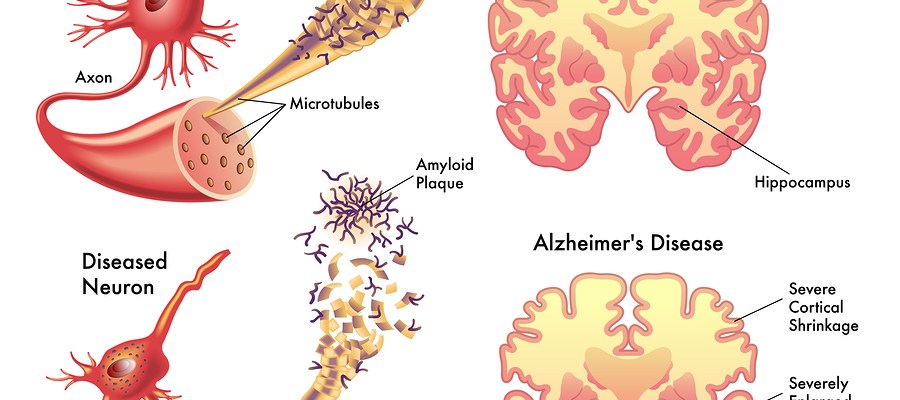|
By Mariel Corinne Tai Sander
Edited by Kim Chia In 1907, at a conference in Tubingen, Dr. Alois Alzheimer described a curious disease characterized by “numerous small miliary foci…found in the superior layers…the storage of a peculiar material in the cortex” [1]. While researchers now know what those “small military foci” are—plaques of beta amyloid proteins in the brain—the reason why they form and lead to the neurodegenerative disease known as Alzheimer’s remains a mystery. Researchers at Harvard University have found a possible explanation for why these plaques form. Their theory is connected to the workings of our immune systems. They have found that as part of the innate immune system, amyloid proteins are present throughout the body and trap foreign microbes. Researchers are proposing that the same thing happens in the brain—when a microbe enters the brain via the blood-brain barrier, the immune system sends in beta amyloid proteins to stop the pathogen. This accumulation of protein forms the characteristic plaques of Alzheimer’s [2]. This theory implies that the plaques might be caused by infections in the brain. Researchers have found this hypothesis consistent with results from testing in individual neurons, yeast, roundworms, fruit flies, and mice. In one experiment the researchers inserted Salmonella bacteria into the brains of two groups of young mice: one that produced beta amyloid proteins and one that did not. They found that the brains of the mice were filled with beta amyloid plaques, engulfing the bacterium. The mice who couldn’t produce the protein had no plaques - but they also died more quickly from the infection [2]. This model of Alzheimer’s is further complicated by a study at the Weizmann Institute of Science in Israel. Michal Schwartz and her team gave mice PD-1 blockers, which kept their immune systems active and halved the amount of amyloid beta, then administered cognitive tests. They found that after the blockers, the mice scored better than they had before [3]. What these two studies show is that development of Alzheimer’s disease is intrinsically dependent on the immune system. However, it’s not clear whether it’s a result of an overactive or an underactive immune system. The study at Harvard would suggest it is the former - that is, an overproduction of amyloid beta proteins in the brain. Michal Schwartz’s, on the other hand, suggests the opposite - the immune system could play an essential role in clearing the brain of these protein clumps. Either way, the idea that the cause - and thus the cure! - for Alzhiemer’s lies within our own immune systems is a groundbreaking one. References [1] http://scienceblogs.com/neurophilosophy/2007/11/02/alois-alzheimers-first-case/ [2] https://www.nytimes.com/2016/05/26/health/alzheimers-disease-infection.html?_r=0 [3] http://www.pbs.org/wgbh/nova/next/body/immunotherapy-drugs-used-for-cancer-could-also-fight-alzheimers/
0 Comments
Leave a Reply. |
Categories
All
Archives
April 2024
|

